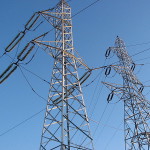 The House of Peoples’ Representatives (HPR) on Thursday unanimously endorsed the bill recently presented to it granting Djibouti full and exclusive rights to develop and transport up to 103,000 cubic meters of ground water a day from Ethiopia at no fee.
The House of Peoples’ Representatives (HPR) on Thursday unanimously endorsed the bill recently presented to it granting Djibouti full and exclusive rights to develop and transport up to 103,000 cubic meters of ground water a day from Ethiopia at no fee.
The House, which endorsed the bill, lauded Ethiopia’s foreign policy that enabled the tiny neighboring nation to develop water from the Shinile Zone of the Ethiopian Somali region by referring to Djibouti as being “more than a neighbor.”
It was said that Djibouti would invest USD 390 million to develop the water after it secured the budget from global financial institutions with loans.
According to the bill that was presented to the House three weeks ago, Djibouti will import the water for 30 years based on the agreement signed between the two countries in January of 2013.
Following the joint motion report of the Natural Resources Standing Committee and the Budget and Finance Affairs Standing Committee to which a draft bill was referred to last month, the bill was endorsed by all Members of Parliament (MPs) with no debate. In fact, while most of them were praising the government’s proposal to tighten its relations with Djibouti, an MP questioned how the government considered the nature of the water resources that flow out.
“Naturally, water keeps flowing and we can take the case of Abay (Blue Nile). So what consideration has the government identified to manage or control the water that flows out of the country?” an MP asked.
The committee chairman told the House that it was able to get proof from various governmental institutions that supplemented study findings that there was a huge amount of ground water reservoirs in the proposed project areas that are sufficient enough for the area’s development activities apart from providing water to Djibouti.
The draft bill, which incorporates both governments’ responsibilities as well as obligations regarding the water development, which makes Djibouti transport potable water for at least 30 years, was signed by the two nations’ ministers of finance and economy providing Djibouti access to partial water resources in the Shinile Zone.
“Ethiopia agreed to supply water to Djibouti under this agreement free of any charge,” says the agreement, as stated in the bill.
According to the endorsed agreement, Ethiopia shall designate 20 hectares of land in the Shinile area from which Djibouti shall supply water to its territory in addition to the 400 hectares of land in the proposed ground water well field area.
But the agreement stipulates that Djibouti shall pay compensations for residents of the area and for residents of some areas inside its territory that may be affected by the project.
The government earlier reiterated that the agreement had been signed in consideration of the national interest such as the political and economic advantages it enjoys from Djibouti.
Similarly, the Ministry of Foreign Affairs (MoFA) said last week that the water grant to Djibouti is “part of a larger strategic integration plan” aimed at unifying the two countries politically and economically.
It was also the same explanation that was provided during the House’s regular session which later saw a unanimous endorsement. “For us Djibouti is not merely a neighbor. We see it as if it is part of our country,” an MP said.
Under the agreement, Djibouti will install a 70 km-long pipeline from the proposed project area with which to import water from the eastern part of Ethiopia.
Last April a Swiss water company and a Kuwaiti delegation held talks with the Ethiopian government on the potentials of water development and transfer schemes.
Various reports indicate that Djibouti has been suffering from deep-rooted and longstanding shortages of potable water.
According to the latest document, Djibouti gets around 95 percent of its water from ground water. However it has major problems as it is highly salty. The Djibouti city has faced an impending challenge in its development efforts due to the shortage of water.
What is more is that, as stipulated in the bill, Ethiopia has the commitment to ensure exemption from tax and duties goods and vehicles imported for the project.
Ethiopia is also obliged to take measures that can make the project “sustainable, to avoid pollution in and around the project.”
After the project is finalized, Djibouti may set up its own company to manage the operation of the water supply system in Ethiopia’s territory with the right of outsourcing it to a third party.




























Join Conversations